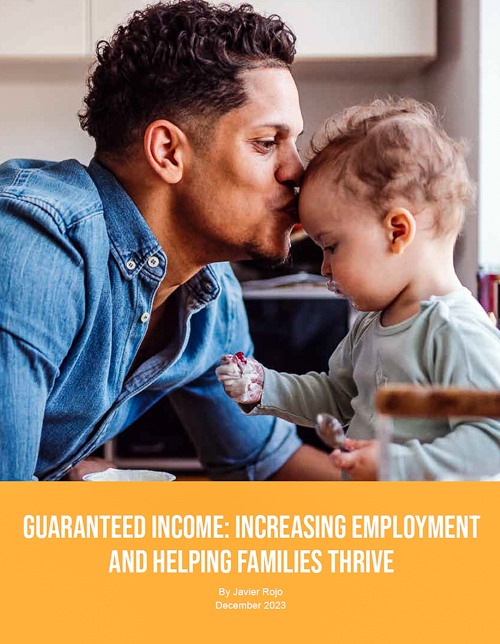A new report on a recently concluded statewide guaranteed income pilot program with immigrant families shows how unrestricted cash assistance programs allowed low-wage earners to pursue better jobs, increase their educational levels, and improve other critical outcomes for their children.
“The NM Economic Relief Working Group’s 18-month guaranteed income (GI) pilot selected 330 mixed-immigration status households to receive unconditional direct cash transfers of $500 monthly for 12 months from February 2022 to February 2023. One-third of households sampled came from rural communities and two-thirds from urban communities. An additional extension was granted to 50 randomly-selected mixed-status households to receive $500 monthly for an additional 6 months (February 2023-August 2023).
Immigrant families were chosen for the pilot because polling showed these families struggled significantly more than the general population during the pandemic because of numerous exclusions from the country’s safety net; these exclusions were due to lack of a social security number even if the household had U.S.-citizen children. In addition, many immigrant parents are not eligible for public safety-net programs, such as unemployment insurance, even though many are essential workers, make substantial tax contributions, and have positive economic impacts on our communities, state, and nation.
After receiving guaranteed income checks for a year:
• Rural participants reporting increases in employment: 14% increase
• Urban participants reporting having unstable work schedules: 36% decrease
• Rural participants reporting having unstable work schedules: 17% decrease
• Participants reporting, they had trouble paying the rent or mortgage on time: 35% decrease
• Participants reporting having to reduce or forego expenses for basic household necessities, such as medicine or food, in order to pay the rent or mortgage: 9% decrease
• Urban participants reporting having to reduce or forego expenses for basic household necessities, such as medicine or food, in order to pay the rent or mortgage: 18% decrease
Also, as part of its advocacy, the ERWG obtained a state rule change so that receiving regular GI payments do not count as income and thus do not negatively impact recipients’ SNAP or TANF allotments. ERWG’s longer term goal is to get the State of New Mexico to provide economic supports to participants in workforce development projects, specifically childcare, home health care and the oil & gas industries.
The report, “Guaranteed Income: Increasing Employment and Helping Families Thrive,” on the New Mexico Guaranteed Income Pilot Program for Immigrant Families, was released on December 12, 2023.”
Here is a link to the report and the fact sheet.


